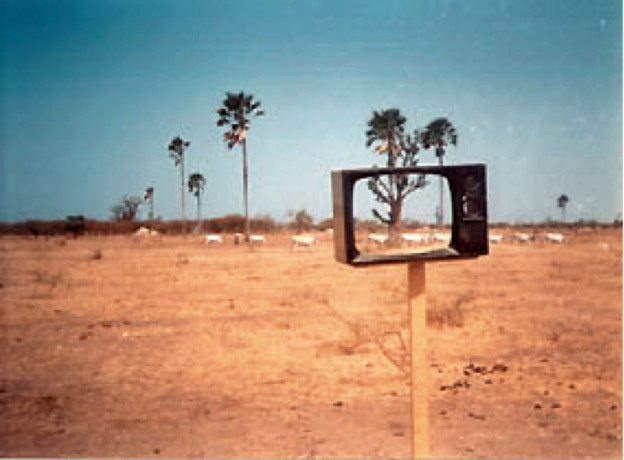 Huit Facettes, a Senegalese collective of visual artists, has disentangled THE historical contradiction between MODERNIST art’s claim to aesthetic autonomy and its ambitions for social relevance. Founded in 1996, Huit Facettes focus their attention ON processual social interventions in the form of workshops. Instead of depending on the institutional framework of art, their localized interventions debase canonical systems of commodified art production. Utilizing the capacities of creative energy, they aim to highlight and alter aberrations in the mostly rural Senegalese socio-political and economic systems. Huit Facettes’ unique approach involves taking the participants of their artistic workshops through the trauma of being socially abject. Helping the participants to rediscover their creative abilities and cultural identities, they become anchored in their own tradition of arts and craft. Conducting workshops in rural Senegal, in villages such as Joal, Ndem and Hamdallaye Samba Mbaye, Huit Facettes attempts to reconcile an ever increasing polarity between the urban and the suburban, between art and development, and between arts and craft (batik, painting on glass, ceramics, pyroengraving, etc.).
Huit Facettes, a Senegalese collective of visual artists, has disentangled THE historical contradiction between MODERNIST art’s claim to aesthetic autonomy and its ambitions for social relevance. Founded in 1996, Huit Facettes focus their attention ON processual social interventions in the form of workshops. Instead of depending on the institutional framework of art, their localized interventions debase canonical systems of commodified art production. Utilizing the capacities of creative energy, they aim to highlight and alter aberrations in the mostly rural Senegalese socio-political and economic systems. Huit Facettes’ unique approach involves taking the participants of their artistic workshops through the trauma of being socially abject. Helping the participants to rediscover their creative abilities and cultural identities, they become anchored in their own tradition of arts and craft. Conducting workshops in rural Senegal, in villages such as Joal, Ndem and Hamdallaye Samba Mbaye, Huit Facettes attempts to reconcile an ever increasing polarity between the urban and the suburban, between art and development, and between arts and craft (batik, painting on glass, ceramics, pyroengraving, etc.).
Huit Facettes tries to mediate the disparities between the “Third” and the Western world, between processes of globalization and the multiplicity of individual temporalities. In 1996, in close contact with local developers such as Maat Mbay (a farmer from Hamdallaye Samba Mbaye and self taught painter of frescoes), Huit Facettes set up a “sociocultural center of creativity” in his village. Establishing a personalized graphic register for the villagers by decorating huts with a new form of alphabet, a mode of corporate identity was collectively conceived.
Huit Facettes’ social work follows a non-Western logic of capitalist liberalism where everybody should be granted privileged access to wealth by injecting artistic perception into everyday use. Their work does not simply incorporate the local into the global, but lends new strength to local idioms and exports their knowledge by confronting and profiting from the workings of global modernity.
